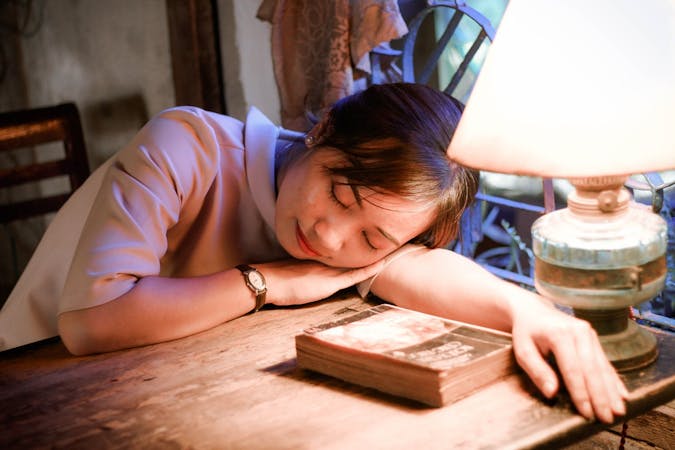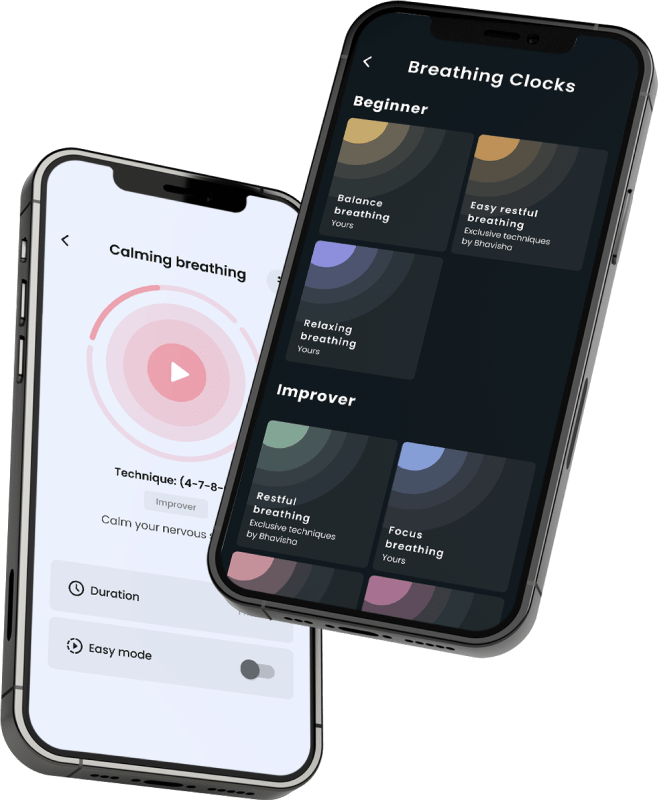Myth or Fact: Is 10 PM to 4 Am the Best Time to Sleep?

Across most of the world, the hours between 10 pm and 4 am are dark all year round. This time window is reputed to be the healthiest time to sleep for a variety of reasons- some scientific, some anecdotal.
However, many people have sleeping patterns that widely vary from this. Sometimes, we vary from the "norm" due to individual preferences. Other times, it is because life calls on us to make adjustments for work or family. As something that affects every part of our daily lives, sleep hygiene is a hot topic with powerful health implications.
What Time do Most People Go to Bed?
In America, the average bedtime is 11:39 p.m, though in the UK it is almost an hour earlier, at 10:43 pm. This varies across the world, but people go to bed typically between 10:30 pm and 1:30 am. Many countries in the world report getting fewer than 7 hours of sleep on average each day, which can make it difficult to function properly. The quality of sleep varies from day to day as well, with most countries reporting the best quality of sleep on Friday night, and the worst quality on Sunday night.
What Defines a Good Night's Sleep?
High sleep quality can be defined by several factors. These include how well-rested a person feels after sleeping, going through a full sleep cycle several times, whether they got enough sleep overall, and whether there were any disruptions.
Many apps nowadays offer sleep-tracker functions. These apps collect data on your movement, breathing, and heart rate while you sleep. This data is then used to predict the stages of sleep you went through and create a picture of the quality of sleep you experienced. However, the only accurate way to collect this data would be to undergo a clinical sleep study.
The Function of Sleep
Scientists across the world have investigated the functions of sleep, but right now, they are no complete answers. So far, we know that sleep is essential for development, conservation of energy levels, clearing the brain of waste, healing the body, maintaining the immune system, as well as for cognitive functions including focus and emotional regulation.
Evidently, sleep is incredibly important for our daily functioning. Studies have shown that persistent lack of sleep leads to cognitive impairment, mental health issues, illness, and even death.
Sleep Cycles
Each step of the sleep cycle involves a unique process with particular effects on the body. Stages 1-3 are classed as Non-REM (NREM), with REM (Rapid Eye Movement) as the fourth stage. Stages 1 and 2 are lighter stages of sleep, but stage 3 is deep and restorative sleep. The average length of one sleep cycle is 90 minutes and we would ideally go through 4-6 cycles per night. Some stages of the cycle change a little in duration as the night progresses.
Sleep Duration
On average, adults should aim for between 7 and 9 hours of sleep per night. This depends upon the individual though. Without adequate sleep, a person will likely experience significant daytime sleepiness.
Consequences of Bad Sleep
We all miss sleep from time to time, but for many of us, this is a common occurrence. It is estimated that between 30 to 48% of adults suffer from insomnia. Insomnia is the most common sleep disorder, characterised by difficulty falling asleep and getting a full night's rest. Insomnia can leave a person feeling sluggish, sensitive, and slow to react.
Over time, physical symptoms will become more apparent, including a higher likelihood of infections such as the common cold or flu, muscle weakness, and weight gain.
The symptoms become more and more severe with a higher extent and duration of sleep deprivation. Over a prolonged period, chronic sleep deprivation can sometimes lead to more serious health problems such as diabetes and heart disease.
Sleep Patterns by Age Group
Of course, the parameters of a good night's sleep or sleep deprivation shift depending on the age of an individual.
Children
Children need to sleep earlier than adults as they require much more than the eight-hour range to get enough sleep for their developmental needs. This is no surprise considering how much growth and learning children go through each day.
Babies fall asleep regularly and tend to get 12 to 17 hours of sleep each day. At age 2, that reduces to 12.5 hours on average, at age 5 it is about 12 hours, then children up to 12 years old require around 11 hours.
Teens
Our internal clock shifts later when we get to our teenage years and into young adulthood, which interferes with the early morning wake-up schedules that many schools and colleges set.
Teens require 8-10 hours of sleep, but due to the later circadian rhythm, they often miss out on a large proportion of this necessary sleep.
Young Adults
Similar to teens, young adults often still have a later circadian rhythm, meaning their natural bedtime is often around midnight or the early hours of the morning. Because of this late sleeping time, young adults often have trouble waking up in time for university or early starts at work. However, around this age, the sleep requirement shortens to between 7 and 9 hours. Many young adults begin to acclimatise to going to bed earlier, too.
Adults
How much sleep an adult requires depends largely on their genes. For some adults, 6 hours or less is perfectly fine to retain normal cognitive function. However, for most people, 7 to 9 hours is necessary. It is estimated that around 30% of the population has a late chronotype, meaning that their natural bedtime is late in the night or in the early morning hours. This can severely impact their quality of life due to early morning wakeup schedules and common misconceptions about waking up later.
Elderly
As we get into our elderly years, many people report requiring fewer hours of sleep each night, as well as a higher incidence of insomnia. Generally, though, the guideline is around 7 hours of sleep per night.
Why is 10 pm to 4 am Considered the Best Time to Sleep?
Body Clock
As our circadian rhythm is naturally linked with the level of daylight we perceive, it makes sense that the window of time between 10 pm and 4 am is considered optimal for resting. Many scientists believe we naturally evolved to rest in hours of darkness as we are much less functional at this time, due to lack of sight.
However, one thing we can immediately note is that this window of time only provides 6 hours of rest. This may be influenced by the age-old idea that an hour of sleep before midnight is worth two hours of sleep afterwards. There is no proof to back up this phrase and many scientists view it as outdated, but there is some truth to it in the sense that our circadian rhythm changes in the early hours. This means that it can be much more beneficial to fall asleep in the late evening than to delay sleeping until the early hours.
According to Dr Matt Walker, head of the Neuroimaging and Sleep Lab at the University of California, our sleep schedule switches in the early hours, favouring lighter, REM-based sleep over deep sleep. This means that if you were to fall asleep at 3 or 4 am, the brain is naturally inclined to remain in lighter sleep phases, even if you get a full 8 hours. In cases such as this, a person would feel fatigued and unwell throughout the following day. For people who regularly sleep at unconventional times (e.g. night shift workers), this can lead up to serious health problems.
Furthermore, night shift workers often notice a period of chills and nausea between 3 am and 6 am. This is a period of the circadian rhythm known as "circadian nadir", which is also when the mind is at the lowest level of alertness. This demonstrates that even for those who are still awake in the early hours, our bodies respond drastically to light levels.
Celebrity Influence
The American billionaire and Apple CEO, Tim Cook, is reputed to keep to this sleep schedule, possibly causing such a peak in interest in its benefits. Cook has been observed to go to bed much earlier than most, between 9 pm and 11 pm, and at dawn, wake up to start his day.
Many other powerful businessmen/celebrities fall asleep and wake up early, claiming it to be an essential part of a healthy lifestyle. However, a major part of why this is considered the perfect bedtime is due to society's skewed perception of bedtime reflecting on productivity.
Common Biases
Perhaps one of the most prominent reasons people believe in going to bed early is the negative societal attitude towards sleeping in late. Often, late sleeping is portrayed as a sign of laziness or lack of potential. Because of this, many schools and workplaces start at early hours, believing it will boost productivity. However, many healthy adults simply have a later sleep schedule naturally, meaning they constantly struggle against societal expectations to
The Benefits of Sleeping Before 11 pm
In summary, we are programmed to feel awake when we perceive bright light, which is mostly visible around midday. Our body responds to darkness by feeling tired. These basic principles mean that we get the most restful sleep when we follow our body's cues. Often, if we do not have any external disruptions, our brains will start producing melatonin in the late evening.
If we sleep before 11 pm, we are less likely to wake prematurely because of morning light. By achieving a full, unbroken night's rest, we are more likely to feel energised in the morning and have a highly successful day.
The Most Important Factors for Getting Good Sleep
The national sleep foundation guidelines state that when trying to figure out the best sleeping pattern, the most important thing is consistency. Having a set bedtime routine ensures the brain knows when it should be starting to relax.
Keeping a sleep diary is the best way to determine how much sleep you need and whether you would benefit from an early night or a leisurely morning. Track what time you go to sleep each day and note any feelings such as fatigue or lack of focus. Figuring out your ideal sleeping style is incredibly valuable for your health.
Why are We So Varied?
Even for those of us working office hours, we spend time around so many bright lights and screens that our melatonin production often occurs later. Because of the blue light that shines from screens, our body's ability to produce the sleep hormone melatonin is impaired. This is because blue light replicates the light we see in the morning/daytime. For this reason, many of us can go to sleep later than we naturally would feel tired.
Furthermore, lifestyle factors such as shift work can push a person's circadian rhythm out of sync. When we remain awake after feeling sleepy, the brain produces the stress hormone cortisol to keep us alert. This can create a feeling of over-tiredness, where a person cannot sleep even when they want to.
Melatonin is produced the most in the late evening and nighttime, at a time determined by our individual body clocks. Some people tend to feel tired earlier than others, while some of us would naturally go to sleep in the early hours. This is perfectly normal and has an evolutionary advantage for the survival of human communities (it is beneficial to have people awake and on guard during the night). Because of this natural variation, people's natural sleep rhythms depend largely on their genes.

